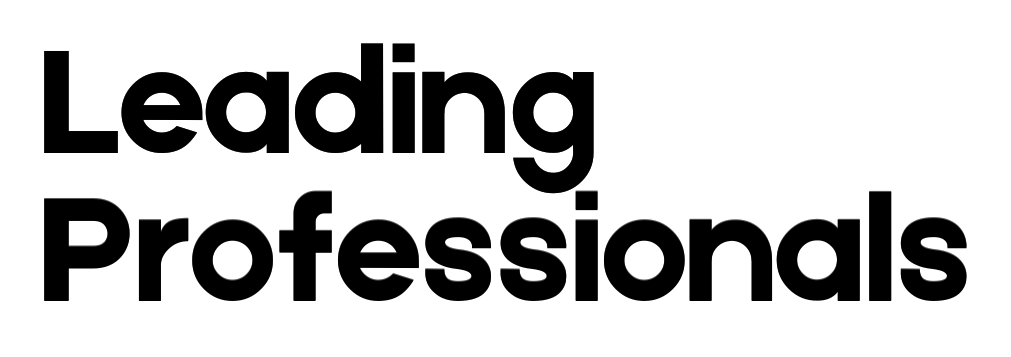
Judith Topley is a qualified architect and has worked in practice both in London and New York. It was during her time in the United States that she broadened her experience within the construction team, taking on roles with a main contractor and project manager.
On returning to the UK, Judith took some time out to raise her twins and then returned to the profession in a role that suited her strengths and interests – practice management. While working in this multifaceted role (finance, people, IT, QA, business strategy) she realized that the people and culture element underpinned the whole business; without people being engaged and motivated to produce their best work, the business would lose out.
With that realisation, Judith undertook CIPD Level 5 in People Management to learn more about this crucial area. She is also passionate about equity, diversity and inclusion, and broadening diversity within the profession and wider built environment sector. She contributes to this and supports people across all stages of a career from outreach to schools to career progression within practice via mentoring.
Judith is kind and supportive, described as having a calm, pragmatic professionalism through tough times. She also has a positive impact as an inspirational female leader that exemplifies excellence and values that meaningfully contribute to society with industry change. She is likeable and friendly, often noted as a breath of fresh air!
Through out her experience and training, Judith has gained valuable insights on how people lead. She offers the following perspectives on leadership with the view of supporting others in how the lead and understand leadership for them selves and their careers.
Leadership Perspectives with Judith…
Leadership is not something you are, it’s something you do.
Leadership to me, in the context of people, workplaces and organisations, is how one inspires, engages, and motivates people to develop and use their skills to do their best work. By doing this, and aligning them with the company’s purpose and values, one can achieve the business’s objectives and have an engaged, fulfilled and relatively happy team.
I find that this is often misunderstood. Many people think that simply being in a leadership role has earned them the power to expect people to do as they say without any further action on their part (i.e. I pay you, you do the job, purely transactional). This concept is very hierarchical and quite out of date.
Leadership now is not the traditional model of “‘leader-hero’ – one who saves the day, knows it all, is the smartest person in the room and is too often driven by power, fame, glory or money” HBR https://hbr.org/2022/04/5-principles-of-purposeful-leadership
It is not just being the star or the sole visionary, and yet many people think it is. This seems especially prevalent in the architectural profession where that one strand of design excellence can often be the basis of a practice being founded.
We too often forget (or were never taught) that a practice is a business, and it needs to be run like one.
That involves successfully managing, motivating, and leading people to achieve the company’s objectives. Architects are knowledge workers – a practice’s greatest resources are its people. Despite having more and more sophisticated technology, we can only get the best out of it by what our skilled people are motivated to put in.
In my mind to be a good leader a person needs a whole host of skills and attributes: vision, communication, integrity, commitment, resilience, inspiration, motivation, delegation, empathy, kindness and – underpinning it all – a generosity of spirit. Genuinely wanting the best for the business and the people in it.
Professional design services benefit when leaders are available and can create a collaborative environment – where people feel heard and listened to.
I genuinely believe most architects understand their responsibilities to their stakeholders, (i.e. the environment and wider society), and increasingly they want to do work that addresses this. Leaders who can cultivate these motivations in their people will reap the benefits.
They must make sure that there is a culture of continual learning and development, interesting and purposeful work. My CIPD training, especially around the organisational importance of people management, reaffirmed my belief in the business imperative of having motivated (and therefore productive) people.
There are attributes that undermine employee engagement, loyalty and productivity: hypocrisy, ego and a sense of entitlement – but the industry is changing.
Hypocrisy
Often referred to as “do as I say not as I do”, this approach simply does not work. Especially in this day and age when people expect more from a company and its leaders. Companies may have changed the wording on their websites and in policies to reflect a people-first approach, but often the daily behaviours don’t match. This just builds resentment and apathy and creates toxic and unproductive cultures.
Ego
The attitude that “it’s all about me and my vision, staff are disciples to the cause, and personal sacrifices are worth it”. Disappointingly this was the attitude at universities and practices some thirty years ago when I studied and entered the profession, and it remains very prevalent today, as evidenced last year by widely-published the incidents at big-name firms and reflected in numerous, current, Glassdoor reviews of top practices*.
This is, however, starting to change with a new generation of young architects coming through that no longer believes that being treated this way is acceptable. Couple this with now proven post-pandemic working practices (flexibility and autonomy) and a need to look after staff and their wellbeing and practices that don’t take note and genuinely change will lose out.
People need to leave their ego at the door and recognise that one’s practice is a group of people that need to be respected and treated well.
*Glassdoor reviews:
- Bosses with big egos, backward way of behaving and treating junior staff.
- Powerless weak HR
- Rudeness from seniors, egos egos egos, no one speaks openly or honestly, poor salary, long hours, lack of appreciation.
- Ingrained culture of “You are worthless and lucky to be here”.
- Very bad behaviour from some seniors/ directors which is widely known about, and the toxic work environment it creates, which allows it to continue.
- Poor/chaotic management, under skilled people, no life-work balance, show-off working culture.
- Top-down management and feeling like you have no voice.
- Low pay and leadership not very diverse

Communication skills are of the most important for leaders to develop and apply, especially in challenging times.
Leaders keep people up to date with what is happening. This can so easily be overlooked in the heat of the moment, but it means a lot to people to know the context of decision-making Leaders should adopt active listening, establish opportunities for people to be heard, both in project work and in practice policy, and make tough decisions sooner rather than later and be honest about them.
The pandemic – when the workplace was dispersed through mandatory working from home – turned everyday working practices on their head. Communication that came naturally and without effort had to become intentional very quickly. The legacy from those times has proved to be very useful to continue with.
Leading through the pandemic and other difficult times, and recognising the importance of communication and listening, has led me to the realisation that a company really is the sum of its parts – with particular emphasis on people.
Leaders should genuinely welcome other voices and different opinions.
Architects endlessly talk about collaboration, but don’t always exhibit it. Although there are many statements and programs supporting diversity and inclusion, leaders must ensure they are genuine. Take the time to understand the difference between equality and equity and act on it. It’s more harmful than just owning what you are. Don’t pay lip service or tick boxes – it’s disingenuous and detrimental, and people can see it.
The profession can still be very cliquey and judgemental which is very off putting to those from underrepresented groups. It is heartening to see the profession’s culture changing to be more welcoming and inclusive to everyone, but there is a long way to go.
As people, leaders bring experience and knowledge from their personal lives into the workplace. This makes collaboration and connection stronger amongst colleagues. One of the examples of this is parenting:
Parenting is without doubt the toughest management and leadership job in the world! Needing to use your motivational skills 24/7 to get things done and the realisation that ‘do as I say not as I do’ doesn’t work. The best thing a parent can do is guide and let a child work things out for themselves. It might take longer and be messier, but ultimately, they will learn to do it for themselves and get better and better.
In the business world this is delegation and empowerment and being prepared to deal with failure and mistakes without shame. Not that our colleagues are to be treated like children, of course, but the transferable skills and traits are numerous – rooted in genuine care.
We are all leaders in one way or another and no one needs to wait for a senior role to offer leadership.
Leadership skills can be learnt and exercised right now by anyone. The old ‘team player’ skill has evolved slightly and is more defined. It’s important to be respectful of your colleagues, have some level of emotional intelligence, and treat everyone like a human being.
Hone your skills at every opportunity –
People should always look for what opportunities there are to learn and not be limited to what they do in their daily work. I always suggest to Part 1s and Part 2s that leading an outreach project is the perfect opportunity to make connections and build new skills, all the while having a positive impact on others.
Demonstrate generosity of spirit –
I can do this as I have achieved, in career terms, all I set out to do and so am now at a point of giving back and thinking of others. But when you’re still climbing the career ladder it can seem you ‘don’t have time’ to see or appreciate someone else’s success as your own, i.e. your part in it if you’re leading a team. But you should – a leader’s success is reflected in the success of those they’re leading or have led.
Increasing and encouraging outreach/giving back –
As well as being great for the recipients it is hugely rewarding too for staff. It just takes time and effort to organise and make the connections. This is something I’m always happy to do. As we advance in our career, we learn so much that others can benefit from. Sharing this with humility and intention helps others and can lift the profession as a whole.
Finally, no matter what role you play in the industry – a student, client, employer or mid-career professional – remember that no one is too important to smile!


